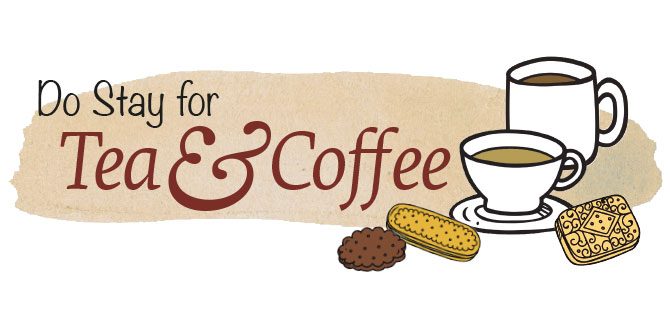Do stay for tea and coffee: ‘We scatter God’s word, seeds of hope’ - Reform Magazine
Paul Kerensa on broadcasting, from the roaring 20s to the 2020s
My lockdown project last year wasn’t sourdough or jigsaws (try a sourdough jigsaw – the crumbs are very difficult to put back together again.) It was researching the origins of broadcasting in the 1920s. No, stay with me… don’t touch that dial.
I found much-needed joy by disappearing into the nostalgia of a century ago. The Downton era can be comforting when today seems less so. To justify my research, I turned it into a podcast (The British Broadcasting Century – available in all good podcast places), and I’m writing it as a novel and a TV drama series (as yet uncommissioned: producers, call me.)
I’ve totally fallen for this period. Give me the roaring 20s over the 2020s any day. I’m drawn to the characters and innovations: a few brilliant minds somehow launching an entire industry. The more I looked into it, the more I saw today’s world reflected in broadcasting’s birth story. After the Great War, the world was ready for cultural and technological change. Just as radio came out of that global catastrophe, so the pandemic has nudged us towards live streaming and video calls. If technology answers a crisis, our way of life can change enormously.
When the BBC launched in 1922, almost every broadcast was a first: the first children’s programme was on day two and the first live music programme was on day three. The first religious broadcast came six weeks later, on Christmas Eve. The Revd John Mayo announced, in a stilted voice: ‘It is my privilege through the wizardry of Mr Marconi to speak, as I understand, to many thousands of people. Surely no man has ever proclaimed the Gospel from such an extraordinary pulpit as I am now doing.’
The clip is worth listening to (it’s on my podcast.) He notes the oddity that, for the first time, he can’t see his congregation. Today’s world of online church has a similar issue, though we may not have the sizable audience that Mayo enjoyed – estimated at 30,000 listeners, despite the BBC only having four employees at that point.
They had the luxury of monopoly, their only rivals being a couple of European radio stations. Today’s broadcasters compete with YouTube, Netflix, video games, FM, DAB, podcasts, a multitude of TV channels, plus countless online church services that have appeared in the last year – surely hundreds of thousands at the push of a button.
But, like Mayo in 1922, we stumble into this new technology uncertainly yet eager to reach a physically absent congregation. It is, as he said, a privilege, and we’re still proclaiming the Gospel from extraordinary pulpits. More than ever, the world craves hope. If we’re all broadcasting that message, then, whatever church they channel-hop to, I pray this tech will bring comfort to a scattered flock.
We’re all broadcasters now, and it’s curious to note the origin of the word ‘broadcasting’, which didn’t even exist 100 years ago. Before radio spread across the planet, ‘broadcast’ was solely an agricultural adverb, a way of describing how a farmer could scatter seeds, far and wide. It brings to mind the Parable of the Sower, as we scatter God’s word. From Zoom to YouTube to Facebook Live, those seeds can reach people where they are, even if there are many thorny rivals for attention.
Jesus said, at the end of that parable: ‘Whoever has ears to hear, let them hear.’ So may those seeds of hope reach those who crave them – even if sometimes, between the sourdough and the jigsaws, that includes you and me.
Paul Kerensa is a comic writer, performer and broadcaster
___
This article was published in the February 2021 edition of Reform














Submit a Comment